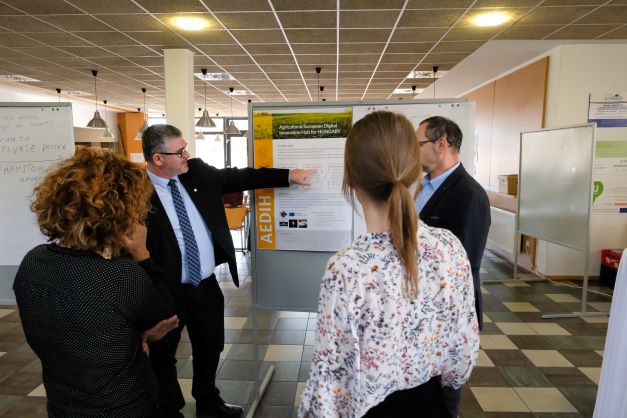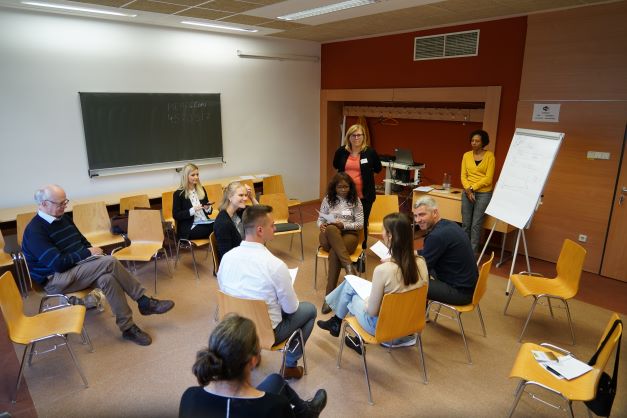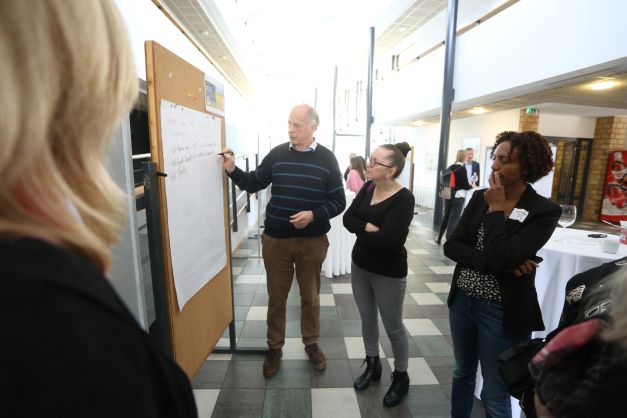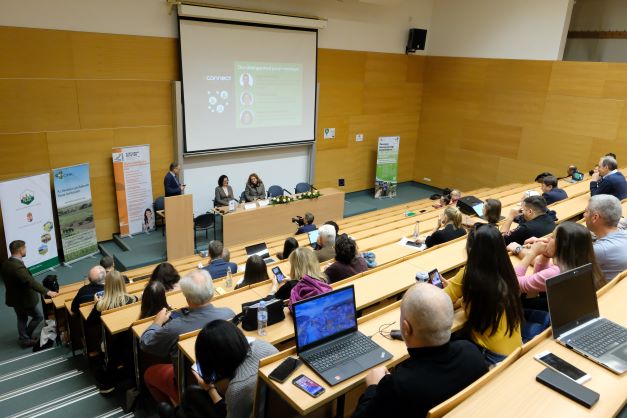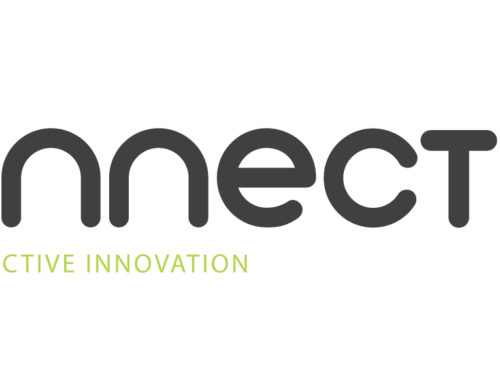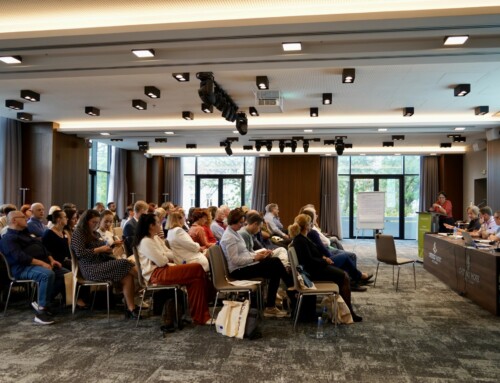i2connect started some three years ago and our mid-term conference took place between the 9th and the 11th of November 2022 at Széchenyi István University in Mosonmagyaróvár, Hungary. It was co-organised by the three Hungarian partners: the Hungarian Research Institute of Organic Agriculture, the Faculty of Agricultural and Food Sciences of Széchenyi István University and the Hungarian Chambers of Agriculture.
This event brought together 70 participants from 18 European countries. In addition, a side-event in Hungarian language was held on the 10th of November and gathered more than 50 advisors from Hungary, Romania and Slovakia, as well as other AKIS actors.
The conference presented the main outcomes achieved so far:
- A clear explanation of interactive innovation, for a better understanding and adoption of this concept by non-scientists, the detailed competency profile of innovation advisors, as well as an example of AKIS country report. Note: the project produced thirty national AKIS reports and a cross-country analysis of them.
- The analysis of practical cases from Finland, Hungary and Ireland, which are a source of inspiration for advisors and other AKIS actors as they reveal some good practices, and also a source of self-confidence for them, as they can see that no case is perfect and that there are often phases of doubt or failure in these processes. So far, the project analysed in-depth ten practical cases and eleven new cases are currently “in the pipeline”.
- The project’s training courses and toolbox, aimed at different target groups: trainers, advisors, managers of advisory services, and students as well. In addition, the participants had the opportunity to experience different situations in practice, through role-playing in smaller groups. In total, the project has trained and coached about 400 people so far.
A panel discussion involving representatives of the Hungarian Ministry of Agriculture, the SCAR AKIS strategic working group, the European Commission and the Food and Agriculture Organisation of the United Nations provided a better understanding of policy makers’ expectations regarding the role of advisors, especially in contributing to the success of European policies (Green Deal), but also to the sustainable development of other regions in the world.
The conference ended with an interactive tour through a poster gallery presenting related European projects, allowing to discuss possible synergies between these projects: for example to disseminate more widely the knowledge generated in each project, to join efforts to populate the European database of advisors, or to share and improve training modules and tools for various groups of actors.
Furthermore, the participants had the opportunity to discover concrete examples of innovation support in Hungary, thanks to field visits to the university’s experimental farm (training in precision agriculture), to a seed company (development of digitalisation) or to a consulting company (wide range of advisory services).
As a conclusion, the coordinator invited all the participants to contribute to the i2connect project by promoting it actively in their professional networks, by providing interesting practical cases, by identifying candidates for our training courses and, more generally, volunteers to register in the Advisory Services Database and thus join our European network of practitioners in interactive innovation.
Photo credits: Laszlo Papocsi and Thomas Alföldi









